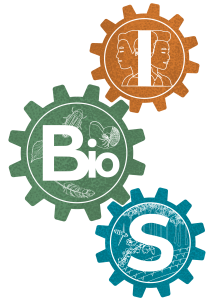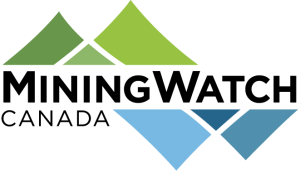The CCJ and iBiois are honored to host this plenary session in coordination with the North American Congress for Conservation Biology: Celebrating Diversity in Conservation from Summit to Sea. For more information, please check out the congress schedule here.
Plenary Session Description:
As we face compounding ecological, economic, and social crises, important tensions have emerged in how to tackle the urgency of solutions affecting climate, biodiversity and Indigenous sovereignty within the context of climate justice. Often, as researchers and movement leaders, we are focused on one part of the problem, which can exacerbate near and far-reaching impacts to people and planet. This panel will explore those tensions as they are arising in relation to critical minerals extraction, an industry that is both essential to many high-profile ‘climate solutions’ such as electric vehicles and solarization, and also disruptive to local biodiversity and lifeways on a potentially large scale. Critical minerals development is accelerating rapidly in many countries around the world. However, in many places this process is accelerating at a rate that does not allow for a meaningful conversation on the risks, negative impacts, and potential benefits to communities and biodiversity. We will hear from leading researchers and movement leaders on the tensions that are emerging between climate and biodiversity in critical minerals mining, and under what conditions critical minerals can be produced in ways that safeguard biodiversity and the rights of communities while meeting the needs for essential climate solutions.
Panelists:
Justina Ray
President & Senior Scientist, Wildlife Conservation Society Canada
Dr. Justina Ray has been President and Senior Scientist of WCS Canada since its incorporation in 2004. In addition to overseeing the operations of WCS Canada, Justina is involved in research and policy activities associated with conservation-based planning, impact assessment and biodiversity conservation, with a particular focus on wildlife in northern boreal landscapes. Having worked for years in African and Asian tropical forests, North America has been her predominant geographic focus over the past two decades.
Justina has been appointed to numerous government advisory panels related to policy development for species at risk and land use planning in Ontario and Canada. She served as the co-chair of the Terrestrial Mammals Subcommittee of the Committee on the Status of Endangered Wildlife in Canada (COSEWIC) from 2009-2017 and a member of the IUCN Taskforce on Biodiversity and Protected Areas in its work to develop the global Key Biodiversity Area Standard (2012-2016). She has been editor or author of 3 books and numerous peer-reviewed articles. She also serves on the scientific advisory boards of the Liber Ero Post-doctoral Fellowship program and the Leibniz Institute for Zoo & Wildlife Research (Germany). She is Adjunct Professor at the University of Toronto (Department of Ecology and Evolution; Graduate Department of Forestry) and Trent University (Environmental & Life Sciences Graduate Program).
Cristina Dorador
Associate Professor, Faculty of Marine Sciences and Natural Resources at the University of Antofagasta, Chile
Dr. Cristina Dorador Ortiz is a Chilean scientist, doctor, and former assembly member of the Chilean Constitutional Convention who conducts research in microbiology, microbial ecology, limnology and geomicrobiology. She is also an Associate Professor in the department of biotechnology of the Faculty of Marine Sciences and Natural Resources at the University of Antofagasta.
She coordinates in Chile of the Extreme Environment Network for the study of ecosystems in the geographical extremes of Chile and has developed biotechnological tools to value the unique properties of some highland microbial communities such as resistance to ultraviolet radiation for elaborate cosmetic creams, joining the field of cosmetic biotechnology. She has also led the development of textile material using the photoprotective properties of highland bacteria.
She was a member of the transition council of the National Commission for Scientific and Technological Research in 2019 that gave rise to the National Agency for Research and Development of Chile, and has been recognized nationally and internationally as one of the most relevant researchers in Chile.
From July 2021 to July 2022, she served as a conventional constituent for District 3, which represents the Antofagasta Region.
Bill McKibben
Founder, Third Act
Bill McKibben is a founder of Third Act, which organizes people over the age of 60 to work on climate, democracy, and racial justice. He founded the first global grassroots climate campaign, 350.org, and serves as the Schumann Distinguished Professor in Residence at Middlebury College in Vermont. In 2014 he was awarded the Right Livelihood Prize, sometimes called the ‘alternative Nobel,’ in the Swedish Parliament. He’s also won the Gandhi Peace Award, and honorary degrees from 19 colleges and universities. He has written over a dozen books about the environment, including his first, The End of Nature, published in 1989. His most recently released book is The Flag, the Cross, and the Station Wagon: A Graying American Looks Back at his Suburban Boyhood and Wonders What the Hell Happened.
Mary Maje
Kaska Elder from Tū Łī́dlīnī
Mary Maje is a Kaska Elder from Tū Łī́dlīnī – or Ross River as it is known in English. Her Kaska name is Éhtūt and she belongs to the Crow Clan. Her parents are Maudie and George Dick. She comes from a large family – there were 13 children in the family. She was born during the month of January at Tū Dísdís Menéʼ – or Pelly Lakes in a cabin when it was 70 below zero outside. Her mom remembered hearing tree branches cracking from the cold. Maggie Bob helped delivering her. At that time Maggie was living across to lake and had to walk in the cold temperature wrapped in blankets to deliver Mary. She spent her childhood travelling with her family all over the Kaska territory following seasonal rounds – they travelled with a dog team in the winter and with canvas boats and on rafts during the summer. Mary is a strong and passionate voice in the community on women’s issues, governance, and on preserving the Kaska way of life and Kaska knowledge. She believes strongly in the preservation of her heritage and supports a return to traditional land use management, recognizing and respecting family use areas. Mary has 3 children, 7 grandchildren, and 1 great-granddaughter.
Linda McDonald
Kaska Elder of the Liard First Nation
Linda McDonald is a Kaska elder, and a member of the Liard First Nation and lives in Watson Lake, Yukon. Linda was raised in a traditional Kaska family, growing up on her family’s trapline seven miles north of Watson Lake in Southeast Yukon. Her childhood was busy with all that was required to live close to the land; trapping, hunting, fishing, gathering of plants, berries and other traditional pursuits. Kaska is Linda’s first language and growing up, it was spoken at home by everyone. Linda learned English while at the Charles Camsell Hospital in Edmonton, where she spent two years, recovering from tuberculosis. She attended day school in Watson Lake, as well as her public-school education. Linda’s post-secondary education includes a B.Ed (University of Alberta), and a Masters of Arts (Carlton University) and a Masters of Arts – Linguistics of a First Nations Language (Simon Fraser University). Linda taught Kaska Language and Culture teacher at the Watson Lake Secondary School and retired from teaching in 2022. Linda has spent much of her life working on issues related to protecting Kaska lands. She continues to share her parent’s lessons in natural resource management, stressing the need to proceed in ways that respect and reflect traditional Kaska values, beliefs and practices. Linda has been a strong advocate for revitalizing the Kaska language as well as protecting Kaska lands and resources. She has been involved with LAWS (Liard Aboriginal Womenʼs Society) LAWS since its establishment 25 years ago. Her Kaska name is Whūdzī Amā́, which means Caribou Mother.
Moderator:
Naomi Klein
Professor of Climate Justice and Co-director of the Centre for Climate Justice, University of British Columbia
Naomi Klein is an award-winning journalist and New York Times bestselling author. She is a columnist with The Guardian. In 2018 she was named the inaugural Gloria Steinem Endowed Chair at Rutgers University and is now Honorary Professor of Media and Climate at Rutgers. In September 2021 she joined the University of British Columbia as UBC Professor of Climate Justice (tenured) and co-director of the Centre for Climate Justice.
*NOTE: Tickets purchased through this link will only guarantee entrance to our three IOF-hosted events. For full conference registration, please visit our official registration site.*
A special thanks to our co-organizers and co-sponsors for their support for this event:









